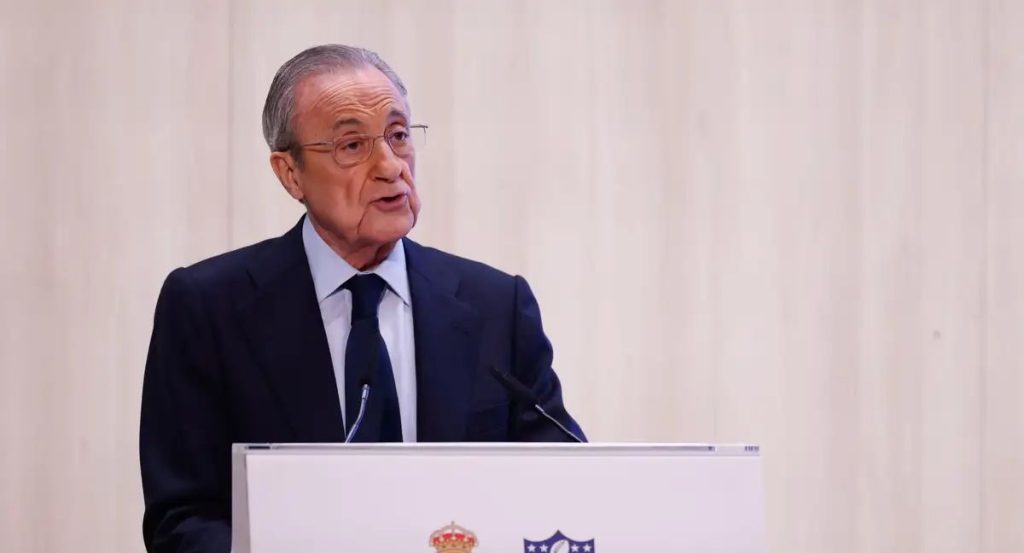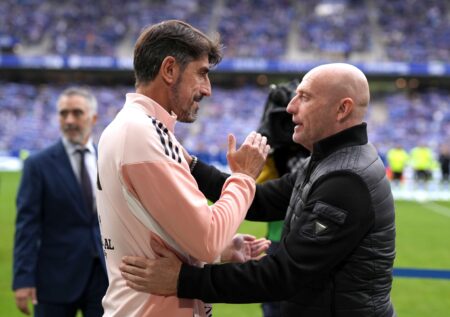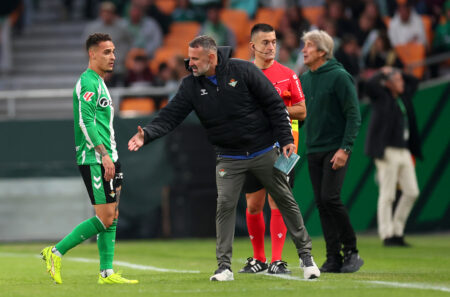La Liga Clubs Demand Action Against Real Madrid
On Thursday, the Spanish Football Federation convened a meeting with all clubs from La Liga and Segunda, aiming to provide a platform for clubs to voice their grievances. However, the current La Liga leaders, Real Madrid, notably chose to skip the meeting, a decision rooted in their simmering frustration with the Technical Committee of Referees. This boycott came on the heels of a contentious 1-0 defeat to Espanyol, where Carlos Romero’s strong challenge on Kylian Mbappe went unpunished, leading Real Madrid to send a strongly-worded letter to the Federation. The snub by Real Madrid, chaired by Florentino Perez, only added fuel to the fire, as their fellow clubs are now united in their demand for action against the pressure Real Madrid exerts on referees.
The Anatomy of the Grievance
The crux of the issue lies in the scrutiny videos that Real Madrid TV regularly publishes, which place referees and their decisions under intense, public scrutiny. These videos, often loaded with criticism, have become a source of significant tension within the Spanish football community. At the Federation meeting, Atletico Madrid and Sevilla, led by CEO Miguel Angel Gil Marin and Jose Maria del Nido Carrasco, respectively, were particularly vocal in their complaints. They argued that Real Madrid’s actions are not only unethical but also have a detrimental impact on the integrity of the game. The pressure exerted by these videos is believed to influence referees, creating an environment where impartiality is compromised.
Real Madrid’s Stance on the Issue
Despite the mounting pressure, Real Madrid maintains that their scrutiny videos serve a crucial role in promoting transparency and accountability within the sport. The club’s leadership, particularly Florentino Perez, has steadfastly stood by the practice, arguing that it helps to highlight and correct mistakes in refereeing. They believe that these videos are a necessary tool to ensure fair play and to protect the interests of their team and the broader football community. However, this stance has not won them many allies, as the rest of the clubs in La Liga and Segunda are increasingly adamant that the practice must be addressed.
Previous Complaints and Their Impact
Sevilla’s previous complaint to the Federation over Real Madrid’s scrutiny videos did not result in any significant action. The club, feeling unheard, has now joined forces with Atletico Madrid and others to demand a more robust response from the Federation. The lack of a decisive response in the past has only emboldened Real Madrid to continue the practice, further intensifying the frustration of their rivals. The Federation’s inaction on this issue is seen as a sign of leniency towards a club with significant influence, which only deepens the divide within the Spanish football community.
The Broader Implications for Spanish Football
The controversy surrounding Real Madrid’s scrutiny videos is more than just a squabble between clubs; it highlights a broader issue of transparency and fairness in Spanish football. The pressure that referees feel from these videos can lead to inconsistent decision-making, which undermines the integrity of the game. Moreover, the divide between Real Madrid and the rest of the clubs is creating a hostile environment that can have long-term consequences for the sport. The Federation must now navigate this delicate situation, balancing the need for accountability with the need to maintain a fair and unbiased playing field.
The Path Forward
As the Federation considers the demands of the clubs, the path forward is fraught with challenges. Real Madrid’s influence and the club’s unwavering commitment to their scrutiny videos mean that any action taken must be carefully weighed. However, the growing consensus among other clubs suggests that the Federation cannot afford to ignore this issue any longer. A balanced and fair approach, perhaps involving stricter regulations on the release of scrutiny videos or a more transparent process for addressing grievances, could help to de-escalate the tension and restore confidence in the refereeing system. The coming weeks will be crucial in determining whether the Federation takes decisive action, and whether this long-standing issue can be resolved in a manner that satisfies all parties involved.











